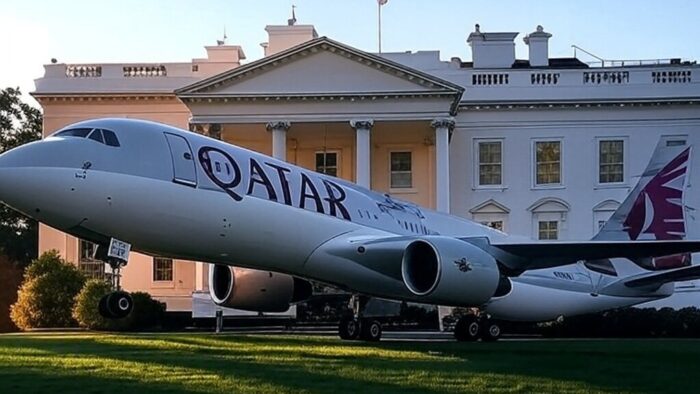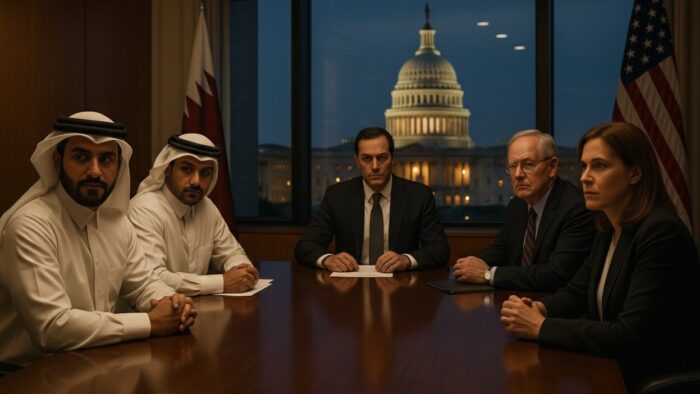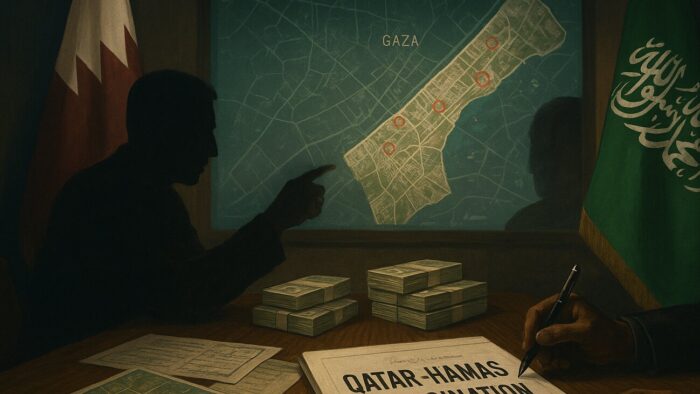Qatar’s US influence operations have become increasingly visible—and controversial—during 2025, as the nation pursues both high-profile gestures and quiet diplomacy. On 26 September 2025, the Quincy Institute reported that Qatar has simultaneously broadened its presence as a diplomatic dealmaker and mediator in some of the world’s toughest conflicts, including Afghanistan, Lebanon, Yemen, and Gaza. The article begins:
Whether you call it the “palace in the sky,” a “$400 million gift,” or “Bribe Force One,” the jet the Qatari government gifted to Donald Trump in May 2025, to be used as Air Force One, became an international scandal with few peers. The plane, which might be the most valuable gift any foreign government has ever given to the U.S., quickly drew the ire of Trump’s critics and supporters alike. Democrats on the Senate Foreign Relations Committee released a statement saying that accepting the jet “creates a clear conflict of interest, raises serious national security questions, invites foreign influence, and undermines public trust in our government.” Several Republican lawmakers, including Sen. Rand Paul of Kentucky and Senate Majority Leader John Thune of South Dakota, also voiced discomfort over the gift. Qatar was quick to get into damage control mode, insisting on a Memorandum of Understanding stating that the plane was worth $200 million (far less than the reported figure) and that the transfer was a government-to-government transaction, according to an official familiar with the matter. While the plane garnered front-page headlines, Qatar has more quietly been establishing itself as a dealmaker in some of the thorniest U.S. foreign policy issues of our time.
Key Points
-
Qatar’s US influence operations have entered the spotlight due to the controversial gift of a $400 million jet, raising concerns about potential conflicts of interest and foreign influence.
-
The plane controversy prompted bipartisan Congressional scrutiny, with Democrats and Republicans alike voicing unease.
-
Alongside high-profile gestures, Qatar has cultivated a role as a leading mediator in international crises, such as those in Afghanistan, Lebanon, Yemen, and Gaza, with ten active mediations as of July 2025.
-
The bulk of Qatar’s influence is built through official diplomatic channels rather than illicit influence operations.
Qatar’s US Influence Playbook: A Shift to MAGA and the Rightwing
Qatar has constructed a multifaceted Washington influence architecture that proved resilient during recent crisis testing, as Israeli strikes on Hamas figures in Doha intersected with years of systematic lobbying, media cultivation, and high-level access development. Department of Justice filings reveal Qatar shifted conservative media focus dramatically following the 2024 election, redirecting foreign agent communications from general outlets to right-wing platforms and MAGA-aligned influencers in a strategic realignment. This tactical pivot built on Qatar’s broader campaign to intensify right-wing media penetration through coordinated story placements, substantial consultant payments, and orchestrated high-profile interviews designed to shape conservative narratives. The effectiveness of these relationships became evident when the recent Doha attack prompted the Trump administration to privately rebuke Israeli leadership while publicly supporting UN condemnation, demonstrating Qatar’s ability to activate sympathetic US responses despite hosting Hamas representatives.
Beyond traditional lobbying, Qatar has diversified its soft power portfolio through cultural and media initiatives, including strategic esports industry expansion targeting global youth audiences and Media City partnership development with international news organizations that drew expert warnings about potential influence operations. High-stakes diplomatic channels have included White House luxury jet negotiations as part of broader access-building efforts across US political networks. Regional complexities intersect with Washington operations as internal Hamas-Qatar coordination documents reported by Israeli media intensified scrutiny of Doha’s claimed neutrality, while European proceedings exposed Qatar’s influence networks through Dutch court testimony on alleged financing channels and Israeli political PR campaigns designed to rehabilitate Qatar’s image before the World Cup.
External references:
- Doha attack tests Qatar’s DC machine
- Conservative media targeted by Qatari foreign influence operations
- Doha Strikes Highlight Clashing Visions of the Middle East
Disclaimer
The Global Influence Operations Report (GIOR) employs AI throughout the posting process, including generating summaries of news items, the introduction, key points, and often the “context” section. We recommend verifying all information before use. Additionally, images are AI-generated and intended solely for illustrative purposes. While they represent the events or individuals discussed, they should not be interpreted as real-world photography.











